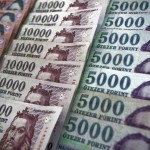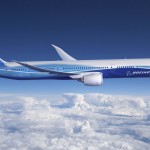U.S. stocks rose despite weaker than expected economic data and Nasdaq three-hour trading halt on Thursday due to a computer error. Investors are speculating on when Fed would begin reducing bond purchases as economy gains momentum.
The Standard & Poor’s 500 Index added 0.39% to 1,663.50 on Friday at 4 p.m. in New York. The index is up 17% this year, the largest advance over a comparable period since 1997, and climbed to an all-time high of 1,709.67 on Aug. 2.The Dow Jones Industrial Average rose 46.77 points, or 0.31%, to 15,010.50. The benchmark index broke a six-day losing streak, which was its longest slump in 13 months. The Nasdaq Composite Index rose 0.52% to 3,657.79 after trading resumed following a computer error.
“Markets have been running away,” Robert Royle, who helps oversee $21 billion as manager of the North American Trust at Smith & Williamson Investment Management LLP in London, said by telephone for Bloomberg on Aug. 20. “Everyone is hoping for a second-half recovery in fundamentals,” he said. “I am just not sure what will drive the recovery.”
Bears say the failure of earnings to keep up with prices signals the bull market is in its last stages, as companies from various industries forecast slower profit growth and the Federal Reserve prepares to reduce stimulus. Optimists point to expanding multiples as proof individual investors are growing confident enough in the economy to return to stocks. History shows the final phases of rallies have provided some of the biggest gains.
In corporate news, Microsoft’s stock jumped 7.3% on Friday, its best daily percentage gain since April 2009, after Ballmer announced that he will step down within the next 12 months once his successor has been identified.
Aeropostale Inc. swung to a fiscal second-quarter loss as the company became the latest youth-focused apparel retailer to record a sharp drop in same-store sales. Shares fell below $9 for the first time since late 2008 as the company issued current-quarter guidance well below consensus views.
Travelocity is pairing up with longtime rival Expedia Inc. to power the core of its business: finding hotels and airfares. The two companies said Thursday that they are entering a long-term agreement under which Expedia will handle most of Travelocitys operations, including running searches, answering customers questions and processing bookings. In turn, Travelocity will largely become a brand aimed at attracting customers to its website rather than a true travel agency.





